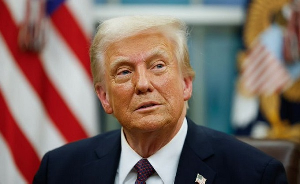Business News of Thursday, 30 July 2020
Source: goldstreetbusiness.com
Strengthened foreign reserves support cedi stability
Ghana’s external financial position has strengthened since the beginning of the year despite the debilitating effects of the COVID-19 pandemic on both imports and exports, data released by the Bank of Ghana earlier this week reveals.
Despite a significant fall in export revenues during the first half of the year, a smaller decline in the country’s import bill, coupled with a narrowing of the current account deficit and net inflows into the capital and financial account enabled gross international reserves to rise to US$9.2 billion by the end of June, up from US$8.4 billion as at the end of 2019, This translates into longer import bill cover, which has risen to 4.3 months, up from 4.0 months at the turn of the year.
The improved external position has slowed the depreciation of the cedi – which fell by just 2.5 percent against the US dollar between the start of 2020 and July 23, as against 8.3 percent depreciation during the corresponding period of 2019 – and indicated a potential for the local currency to remain relatively stable into the run up to this year’s general elections, although government’s extraordinarily high fiscal deficit forecast for this year, of 11.4 percent of Gross Domestic Product may threaten this prospect over the coming months.
Ghana’s trade surplus for the first half of 2020, at US$952.7 million (equivalent to 1.4 percent of GDP) was significantly smaller than the US$1.4 billion surplus (2.5 percent of GDP) recorded in the first half of 2019.
This was the result of an 8.4 percent fall in total export receipts year on year, to US$7.4 billion, this deriving from a 37.9 percent fall in crude oil export revenues due to a 37.5 percent decline in crude oil prices due to sharply lower global demand.
Conversely, though, gold export revenues rose by 6.9 percent on the back of a 17.1 percent rise in the gold price due to global monetary policy easing, geopolitical risks and the global economic slowdown – in such circumstances gold is regarded as safe haven by international investors thereby raising demand for the precious metal. Cocoa export revenues also rose by 8.7 percent year on year, despite a 7.7 percent fall in cocoa prices due to slackened demand for cocoa beans.
However the import bill also declined, although more slowly than export revenue. Total imports fell by 4.1 percent to US$6.4 billion propelled by a 26.4 percent decline in oil and gas imports due to slower domestic economic activity.
Importantly, the current account deficit for the first half of 2020, at US$556.3 million was significantly lower than the US$661.1 million incurred during the first six months of 2019, this improvement deriving from relatively stable net current transfers especially from remittances as well as a significant decline in net investment income outflows in the form of repatriation of profits and dividends.
Net inflows into the capital and financial accounts added onto all this to generate a near zero overall balance of payments for the first half of 2020, compared with a US$1.3 billion surplus during the corresponding period of 2019.
All this has made for adequate liquidity on Ghana’s domestic foreign exchange market, further supported by the BoG’s ongoing forward forex sales.
This has generated confidence among forex market traders, who however remain wary of the potential effects of the unusual size of this year’s fiscal budget, forced upon government by the effects of and the requisite policy responses to the COVID 19 outbreak.
Entertainment











